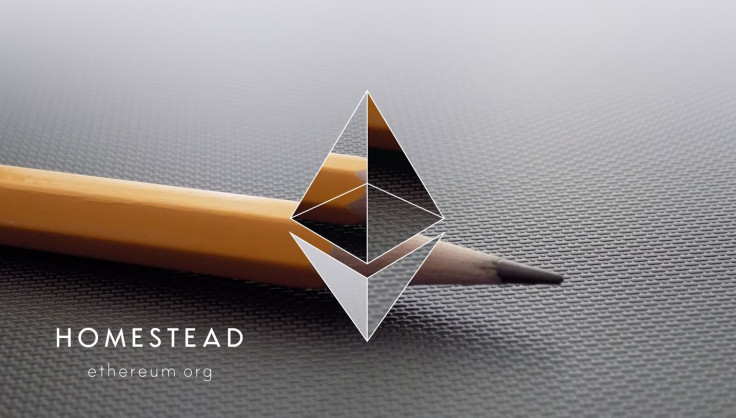Ethereum engineering course puts accreditation on the blockchain

A new course teaching developers how to use Ethereum will host accreditation on the blockchain, and aims to train up 6000 smart contract engineers over the next two years.
The nine-week course will take software engineers through the basics of crypto-economics, defining smart contracts and decentralised autonomous organisations (DAOs), before delving deep into Solidity, the main programming language of Ethereum.
The course is being run by B9Lab and its team of three young blockchain experts – Elias Haase, Ibo Sy and Xavier Lepretre – who between them have some 35 years of programming experience.
Elias Haase, co-founder B9Lab told IBTimes: "What is really important now is to get lots of people into the ecosystem. We see that there is money sloshing around and lots of interest from lots of companies. But everyone is struggling to find the people."
This is definitely true. During a presentation at the recent Consensus 2016 conference, Scott Manuel of Reuters said that blockchain engineering has become a premium skill set, in high demand these days. He said if you included the word "blockchain" on your resume it earns you 2x premium. He said: "It's a good idea to add it to your LinkedIn – quickly!"
Haase said people adding blockchain to their LinkedIn profiles was indicative of this. The B9Lab course will enable people to prove that they have received the certificate, cryptographically. "I think this is quite interesting. It's a logical step when you are training people to work on the blockchain."
The course offers certificates to those participants who manage to maintain an average of 80% or higher, which will be signed on the Ethereum blockchain. Haase said the certificate for those that consistently perform well is entirely possible to attain, provided you focus and put the time in. From testing groups of trainees B9Lab found some 70% of people managed to get the certificate. "Of course we want it to be rigorous and the certificate to really mean something."
In addition, the Ethereum-based certification Dapp the team has built can be repurposed for other users of Ethereum that perhaps want to put themselves forward as certifiers of other proposed things, and let the community decide how much a certifier is worth and what does that mean.
Haase added: "It costs £830 to take the training. For many people that's a lot of money. It is an intense course and an investment. We think it's maybe one and a half days rates for an Ethereum developer, to pay for the training."
Currently people start on between £400 and £600 a day, contracted as an Ethereum developer, a bit less for full time.
Haase said B9Lab is also working on is another kind of DAO that enables organisations that have a vested interest in the ecosystem to sponsor seats on the course for those that can't afford it. "We have already got interest from a few companies that want to sponsor seats," he said.
Haase said the hardest part about learning how to develop smart contracts and decentralised apps is wrapping one's head around this new computation paradigm. "It's a stateful computer, it works differently. You are trying to apply what you already know and it doesn't work that way.
"With regular coding paradigms you write an interface and you expect that what will be shown on the interface is like an absolute thing. The numbers are absolute: they don't change. But on the blockchain you might be on a fork so the numbers might change; you look at it again and the reality is different."
So does the fact that Ethereum is so new make it harder for students to compile code, than say JavaScript?
"Yes, one of the hardest parts about the whole thing is figuring out why things don't work, if they don't work. The Ethereum project has made huge strides in the past few months and has become a lot more stable, but it is a whole new suit of tools and there's still a lot of work to be done.
"Even if a lot of the core code is really solid - where is the documentation and where do I find out how to de-bug this, where do I find out how this works and so on.
"This is why it has taken us actually a bit longer than we thought it would to build all the content. In a few cases we had to dig in and basically write our own documentation for a few things."
This course teaches software engineers about Ethereum, the programming language Solidity, how to use web3 and the Truffle framework, and how to tie everything together. Step by step, students are going to build a fully functional decentralised application, deploy it and test it.
In terms of workload, those looking for certification should spend between 4-6 hours per week on each of the nine modules and homework. The course starts on 14 June.
© Copyright IBTimes 2025. All rights reserved.






















